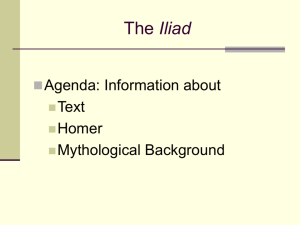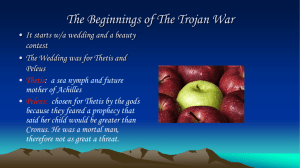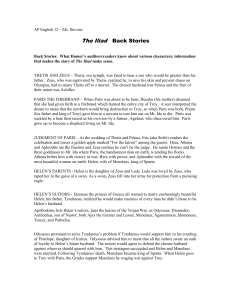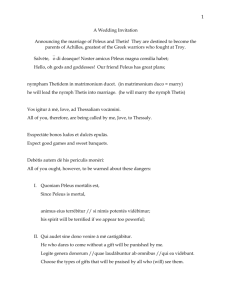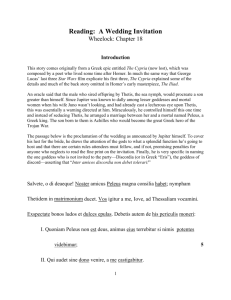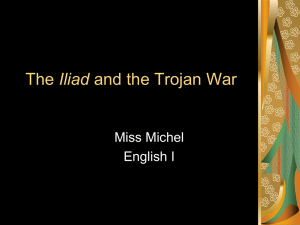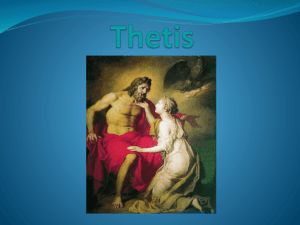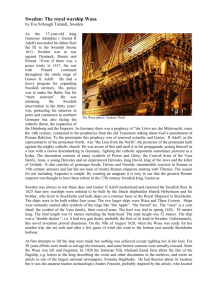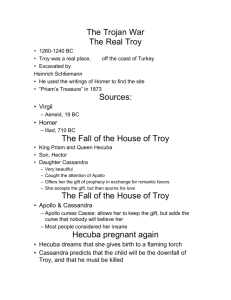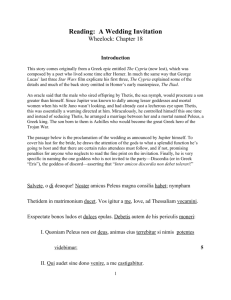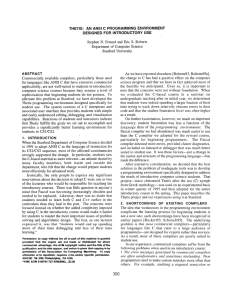Intro to Iliad
advertisement
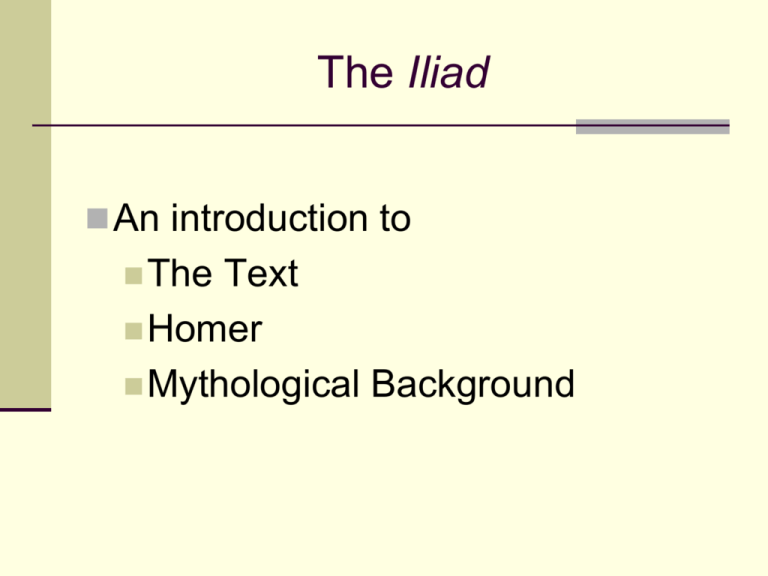
The Iliad An introduction to The Text Homer Mythological Background Important Names, Dates and Terminology Written/composed in the 8th century BCE The supposed date of the fall of Troy is 1184 BCE Homer is attributed with The Iliad & The Odyssey Epic form (long narrative poem in elevated style) Oral Tradition is responsible for some of the stylistic repetition and syntax of the poem. What is Believed about Homer… according to tradition… He was the greatest of the oral poets (bards) Lived in Ancient Greece during 8th Century BCE Was blind Came from Ionia in Asia Minor (modernday Turkey) He may only be a compilation of characters given the name of Homer, meaning “He who fits the song together” Important Themes, Motifs and Narratological Elements CHOICE and PERSUASION THE HEROIC CODE LEADERSHIP TRIANGULAR RELATIONSHIPS SIMILES THE GODS & THEIR PLAY Do NOT Reduce the Iliad to either: WAR Or PRIDE Or FATE Characteristics of Homeric Text: Beginning in medias res (into the middle of a narrative) Cinematic presentation of events and of warfare Look for sense imagery in the text Use of SIMILES Use of PARALLELISM when discussing events, characters and gods Homeric Cycle Series of texts about Troy Some tell the same stories as the Homeric epics Many tell entirely different stories What still exists contains only a part of the entire story of the Trojan War Mythological Stories You Need to Know Hecuba’s Dream of the Burning City Wedding of Peleus and Thetis Judgment of Paris Helen and the Suitors Assembling the Suitors Hecuba’s Dream of the Burning City Priam = Hecuba __________________|___________________ SONS: DAUGHTERS Hektor (m. Andromache) Cassandra Paris (m. Helen) Polyxena Deiphobus Creusa Polydorus 47 other daughters 46 more sons Wedding of Peleus and Thetis Thetis: water nymph, daughter of Nereus Peleus: mortal man, son of Aeacus, King of Aegina Thetis and Peleus are the parents of Achilles Wedding of Peleus and Thetis (cont.) OLYMPIAN GODS Aphrodite: goddess of love Apollo: god of healing, music, prophecy Ares: god of war Artemis: goddess of the hunt Athena: goddess of wisdom, strategy Demeter: goddess of the Harvest Hephaistos: god of fire and metal craft; son of Hera and Zeus; crippled because he was thrown by Zeus Hera: wife of Zeus Hermes: messenger god Poseidon: god of the sea Zeus: king of the gods; (very unfaithful) husband to Hera Wedding of Peleus and Thetis (cont.) ERIS: Goddess of Discord, not invited to the wedding of Peleus and Thetis Golden apple inscribed “To the Fairest” Helen and the Suitors Helen: daughter of Tyndareus Clytemnestra: daughter of Tyndareus; twin of Helen; (later) wife of Agamenon Penelope: niece to Tyndareus Suitors Agamemnon: king of Argos; son of Atreus; brother of Menelaus Menelaus: brother of Agamemnon Odysseus: king of Ithaka; (later) husband of Penelope Ajax: son of Telemon; great warrior Assembling the Suitors Agamemnon Menelaus Odysseus Ajax Achilles – the most difficult to find Key Aspects of the Epic’s Opening we we discuss… Emphasis on the 1st word Invocation of the Muse Questions What events are set into motion in the opening 2 pages? Who is who? What are the key words? Are any of the themes mentioned earlier present in this segment of text? For Next Class You will be individually researching one of the 24 books (chapters) of The Iliad. Each student will then be sharing the knowledge of each book with the class so that we will all be able to understand the entirety of The Iliad. We will then be reading and sharing Book 22 together, which is the climax of The Iliad, and evaluating the overall themes of the story.
